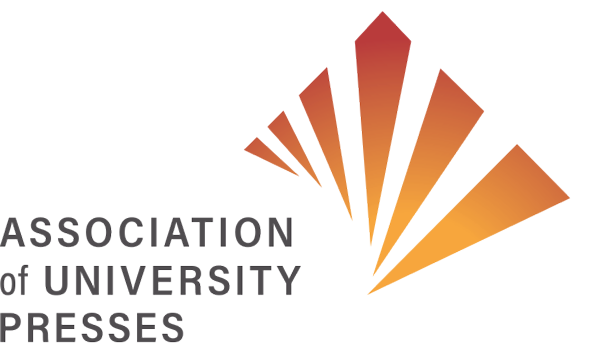Corrects Misrepresentations of University Press Practices
In June 2020, the US Copyright Office undertook a public study, at the request of Congress, to determine the extent to which copyright owners are experiencing infringement by states without adequate remedies under state law.
Because some of the responses to the Copyright Office’s initial request for public comment inaccurately portrayed university presses’ copyright standards and practices, individually and collectively, AUPresses today offered reply comments to protect the reputations of our members and to correct this erroneous accounting.
October 22, 2020
Regan A. Smith
General Counsel and Associate Register of Copyrights
U.S. Copyright Office
101 Independence Avenue SE
Washington, DC 20559-6000
Dear Ms. Smith:
I write today on behalf of the global community of university presses to offer reply comments to the U.S. Copyright Office (USCO) as it continues to review copyright and state sovereign immunity (Docket No. 2020-9). University presses have been portrayed inaccurately in this public proceeding—suggesting a disregard for copyright in our community that simply does not exist—and the Association of University Presses seeks to correct the record.
University presses work hard to support, protect, and defend copyright, as both its consumers and its producers. In the past year alone, our member presses published approximately 12,000 new books and 1,500 journals, working with thousands of scholar-authors in a manner grounded in a clear and well-informed respect for copyright and fair use.
University presses expect their authors to comply with copyright law and require documentation of all third-party permissions or fair use assessments to use copyrighted material to accompany any manuscript submission. Our Association’s public FAQ, “Author Responsibilities and Copyright Guidelines,” offers ready evidence of our community’s serious and thoughtful attention to best practices in this complex area. Developed by our Intellectual Property and Copyright Committee and subject to annual review and updating, this living document offers guidance to assist university press authors in fulfilling their copyright and permissions obligations. University presses also employ an extensive series of checks on copyright protection at every stage of the publishing process, engaging acquisitions, copyediting, and rights and permissions staff to assess diligently authors’ permissions and fair use claims and to work with them as necessary to ascertain what is appropriate and what is not. The same level of care is also invested in researching and clearing rights for the purpose of reprinting or digitizing backlist titles. In addition, university presses frequently communicate with their university Office of General Counsel to ensure legal compliance.
Despite having fewer resources than for-profit publishers, university presses nonetheless invest robustly in the research, registration, and protection of copyright as well, financing:
- salaries for dedicated contract or rights managers, if not whole rights and permissions departments;
- copyright registrations (with estimated combined fees in excess of $750,000 for our community’s new books last year alone); and
- purchases of anti-piracy services to protect their own and their authors’ copyrights as well as the copyrights of third-party materials included in published works.
Individual university presses’ vigilant monitoring and repeated efforts to remove in-print titles from illegal so-called pirate websites also speaks to how seriously our community takes copyright violations, especially when they can impact the careers, livelihoods, and reputations of their authors.
University presses’ attention to and advocacy for best practices, and daily investment of staff time and resources in upholding those practices, demonstrate how our members respect and safeguard the rights of other publishers, authors, and copyright owners.
It has been a long reality that art and literary scholarship occasionally can be hampered by inappropriate and overreaching claims of copyright, when even legal clearance from proper rights owners or legally recognized parameters of fair use cannot overcome the expensive hurdle of nuisance claims, caused by perceived, rather than provable, infringement. Claims of copyright abuse made by Patricia Ward Kelly, Gene Kelly’s widow and Trustee of the Gene Kelly Image Trust, and reported to the USCO by herself and others, may be characterized this way.
For example, copyright to the interviews with Gene Kelly in the cited University Press of Mississippi project belongs to other parties, who properly gave permission for their content to be reproduced in the scholarly and artistic reference work by author Kelli Marshall. It is worth noting that Ms. Kelly’s unsuccessful litigation against Mississippi was not decided on state sovereign immunity grounds; rather the court there concluded that, in her zeal, the plaintiff’s pre-publication lawsuit had to be dismissed on grounds of ripeness. It is also worth noting that, despite a successful outcome, the risk of further nuisance litigation dissuaded the scholar in this case from completing her work—exactly the opposite outcome that is the very purpose of copyright law.
In another instance, in the University Press of Kansas book, Gene Kelly: The Making of a Creative Legend by Earl Hess and Pratibha Dabholkar, brief quotations taken from Mr. Kelly’s interviews fall well within the legally recognized definition of fair use. As sometimes happens in the case of the estates of great artists and public figures, heirs fail to appreciate the limits of copyright protection. In her numerous interactions with university presses, Ms. Kelly, quite simply, is not attempting to protect her copyright; rather, she is attempting to exceed her ownership rights.
Our community takes no position on the issue of copyright and state sovereign immunity; we simply wish to make clear that if the USCO is seeking to document problems in this area, it should look elsewhere.
As both producers and consumers of copyright, university presses respect and uphold the law. We hope that these comments and clarifications will protect the reputations of our members, generally and in particular; will ensure that the USCO has accurate information in formulating its advice to Congress; and, will correct the erroneous accountings in the public record and keep them from being perpetuated in other fora.
Respectfully submitted,
Peter Berkery, Executive Director
Association of University Presses
